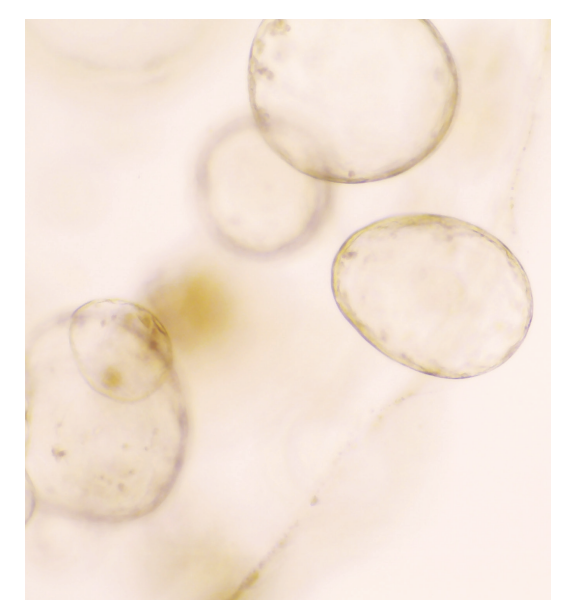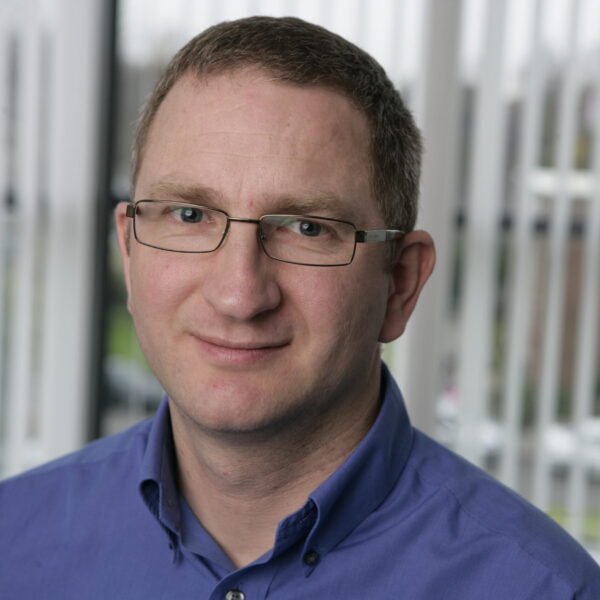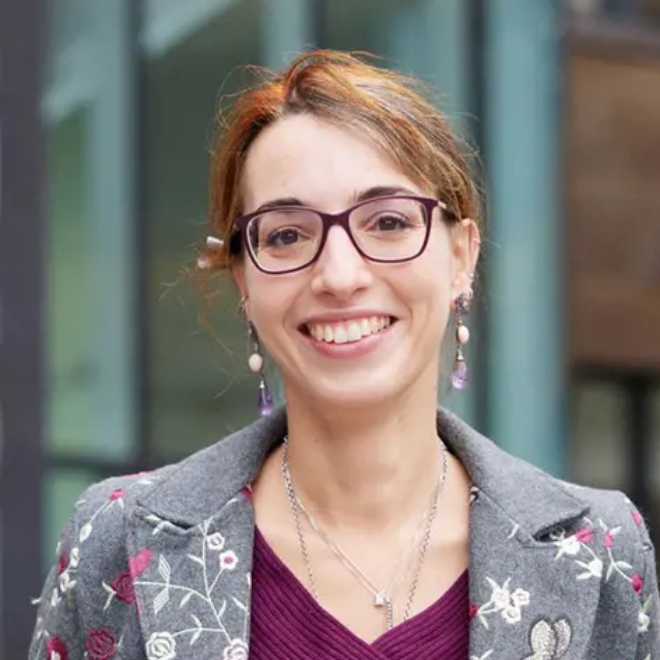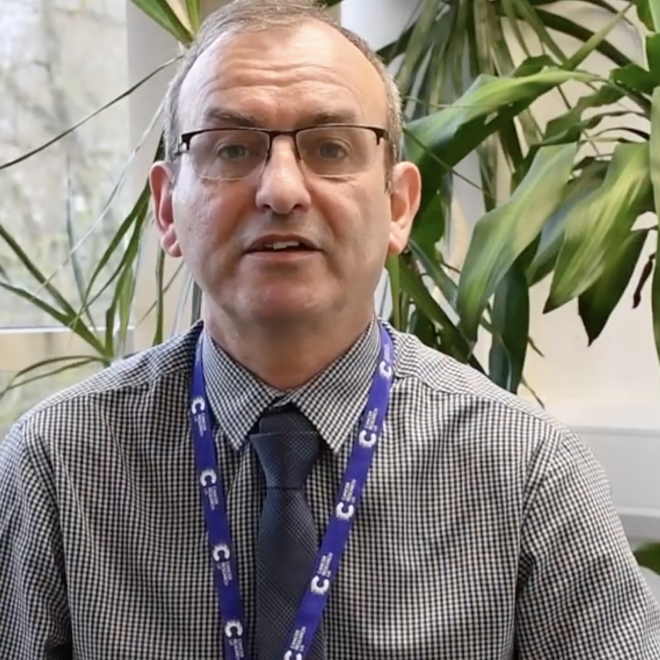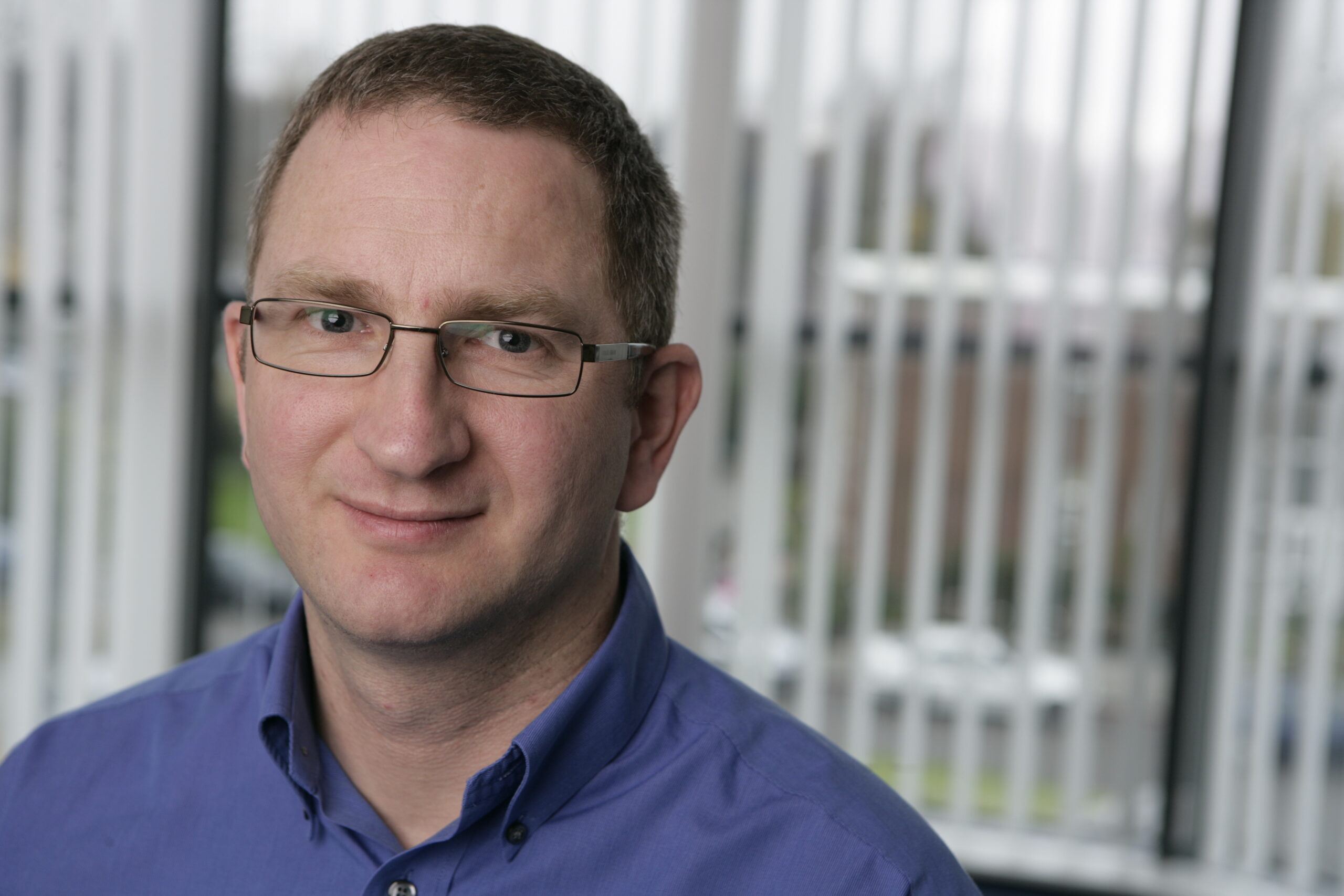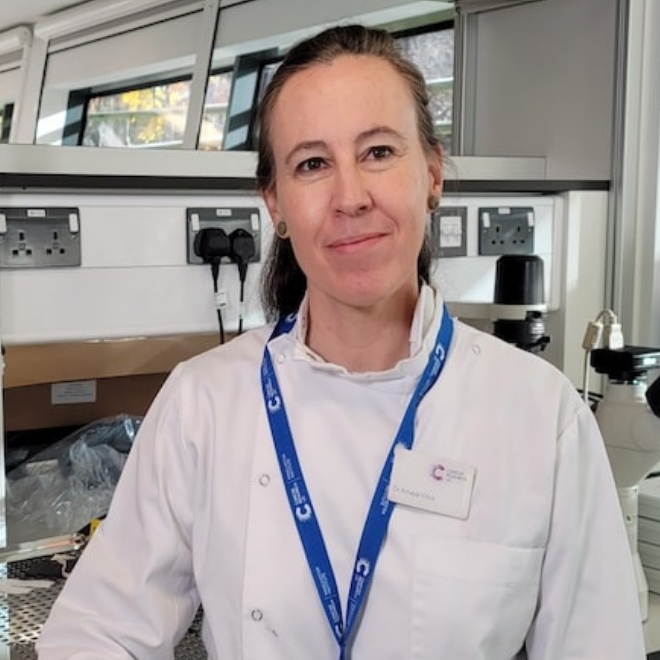Tim Somervaille
Leukaemia Biology Group Leader
Tim Somervaille is a Clinician Scientist at the Cancer Research UK Manchester Institute where he leads the Leukaemia Biology Laboratory. He is an Honorary Consultant in Haematology at The Christie NHS Foundation Trust. His scientific and clinical research interest is in myeloid cancer, including acute myeloid leukaemia and the myeloproliferative disorders.
About Professor Tim Somervaille
Tim Somervaille is a Senior Group Leader at the Cancer Research UK Manchester Institute where he leads the Leukaemia Biology Laboratory. He became Professor of Haematological Oncology in 2016.
He is also an Honorary Consultant in Haematology at The Christie NHS Foundation Trust. His scientific and clinical research interest is in myeloid cancer, including acute myeloid leukaemia and the myeloproliferative disorders.
Tim’s medical training was at Imperial College London and University College London. His scientific training was at University College London and Stanford University.
Groups
Qualifications
- BSc (Hons). MB BS PhD FRCP FRCPath
Interests
- Therapeutic targeting and epigenetic regulation in myeloid blood cancer
Publications
- Stromal lipid species dictate melanoma metastasis and tropism
- The histone demethylase KDM1A sustains the oncogenic potential of MLL-AF9 leukemia stem cells
- Frequent derepression of the mesenchymal transcription factor gene FOXC1 in acute myeloid leukaemia
- Enhancer activation by pharmacologic displacement of LSD1 from GFI1 induces differentiation in acute myeloid leukemia
- A stress-responsive enhancer induces dynamic drug resistance in acute myeloid leukemia.
Visit Research Group
Human acute myeloid leukaemias (AMLs) are heterogeneous with respect to both genetics and the function of the cells that make up the disease. A minority of the cells are leukaemia stem cells (LSCs) which have the ability to self-renew for an extended if not indefinite period, thus maintaining and expanding the disease. In order to cure a patient these cells must be eliminated completely, because if they are not they have the ability to regenerate the disease and induce relapse.
Recent years have seen significant progress in the development of better therapies for people with blood cancer, with concomitant improvements in response. However, there remains a substantial unmet need for more effective and less toxic treatments. For example, outcomes in acute myeloid leukaemia are particularly poor in older adults and those with relapsed or refractory disease and malignancies, such as multiple myeloma, are incurable for the great majority. The overarching goal of the Leukaemia Biology group is to deliver a bench-to-bedside programme of blood cancer research.
Much of our effort is focused on understanding how transcription factors and their associated chromatin cofactors sustain myeloid blood cancers such as AML. In keeping with this, we recently reported our discovery of how a small molecule bromodomain inhibitor of the acetyltransferases EP300 and CBP induces cell cycle arrest and cellular differentiation in blood cancer, as well as our preliminary data from the early phase clinical trial evaluation of CCS1477, where we see promising signs of clinical activity across a range of haematological malignancies.
Get in touch
https://doi.org/10.1038/s41420-025-02582-x
Mutant p53 induces SH3BGRL expression to promote cell engulfment
1 July 2025
Institute Authors (5)
Garry Ashton, John Weightman, Wolfgang Breitwieser, Sudhakar Sahoo, Antonia Banyard
Labs & Facilities
Computational Biology Support, Flow Cytometry, Molecular Biology
1 July 2025
https://doi.org/10.1016/j.celrep.2025.115603
Functional characterisation of the ATOH1 molecular subtype indicates a pro-metastatic role in small cell lung cancer
27 May 2025
Institute Authors (2)
Caroline Dive, Kathryn Simpson
Research Group
Small Cell Lung Cancer Biology
27 May 2025
https://doi.org/10.1016/j.ccell.2025.04.001
Stromal lipid species dictate melanoma metastasis and tropism
24 April 2025
Institute Authors (5)
Amaya Viros, Duncan Smith, Garry Ashton, Alex Baker, Tim Somervaille
Labs & Facilities
Biological Mass Spectrometry, Histology, Visualisation, Irradiation and Analysis
Research Group
Skin Cancer & Ageing
24 April 2025
https://doi.org/10.1038/s41467-025-58343-y
A human model to deconvolve genotype-phenotype causations in lung squamous cell carcinoma
4 April 2025
Institute Authors (4)
Carlos Lopez-Garcia, Robert Sellers, Sudhakar Sahoo, Caroline Dive
Labs & Facilities
Computational Biology Support
Research Group
Translational Lung Cancer Biology
4 April 2025
https://doi.org/10.1186/s12943-024-02157-x
The PI3K-AKT-mTOR axis persists as a therapeutic dependency in KRASG12D-driven non-small cell lung cancer
12 November 2024
Institute Authors (1)
Amaya Viros
Labs & Facilities
Genome Editing and Mouse Models
Research Group
Skin Cancer & Ageing
12 November 2024
https://doi.org/10.1186/s13045-024-01610-0
The small inhibitor WM-1119 effectively targets KAT6A-rearranged AML, but not KMT2A-rearranged AML, despite shared KAT6 genetic dependency
8 October 2024
Institute Authors (6)
Georges Lacaud, Mathew Sheridan, Michael Lie-a-ling, Liam Clayfield, Jessica Whittle, Jingru Xu
Research Group
Stem Cell Biology
8 October 2024
Our vision for world leading cancer research in the heart of Manchester
We are a leading cancer research institute within The University of Manchester, spanning the whole spectrum of cancer research – from investigating the molecular and cellular basis of cancer, to translational research and the development of therapeutics.
Our collaborations
Bringing together internationally renowned scientists and clinicians
Scientific Advisory Board
Supported by an international Scientific Advisory Board
Careers that have a lasting impact on cancer research and patient care
We are always on the lookout for talented and motivated people to join us. Whether your background is in biological or chemical sciences, mathematics or finance, computer science or logistics, use the links below to see roles across the Institute in our core facilities, operations teams, research groups, and studentships within our exceptional graduate programme.



